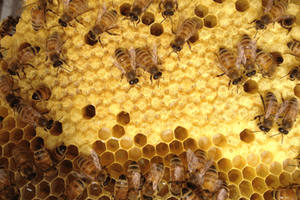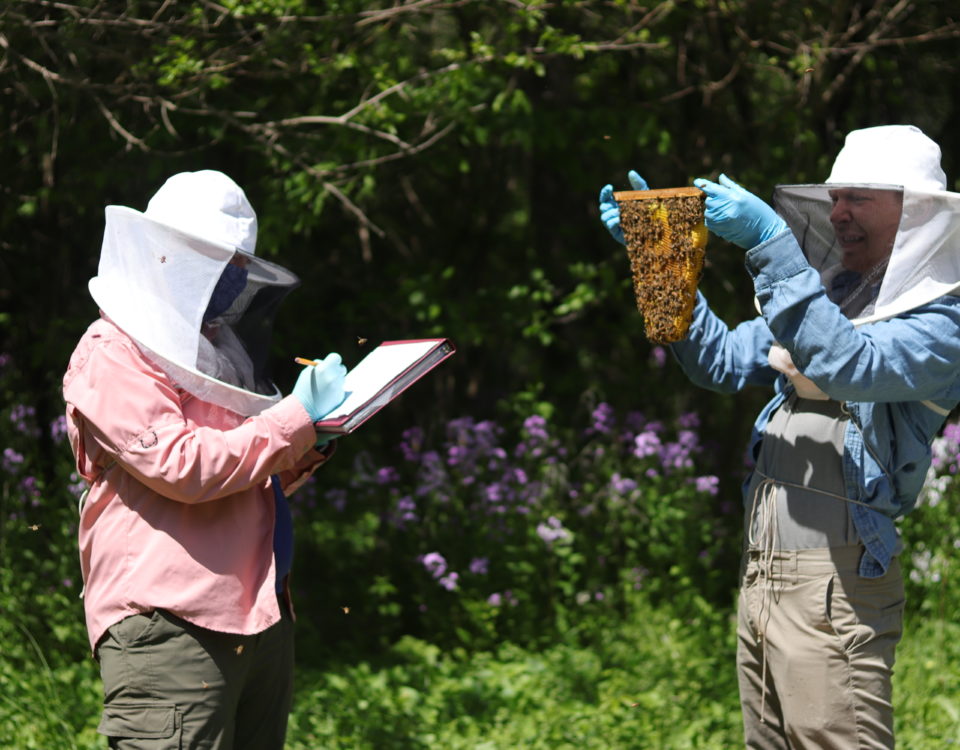- All-In-One Beekeeping for the Bees
- +1-608-728-8233
- info@beepods.com
What Every Beekeeper Should Know About Hive Theft


Imagine strolling out to your hive to see your bees and realizing… your hive is gone. It’s a terrible discovery for any beekeeper. Unfortunately, hive theft – also known as bee rustling – happens to beekeepers all over the US.
In this blog, I’ll cover the recent rise in hive theft, why it happens, and how beekeepers can protect their bees.
Hive Theft Happens A Lot
Hive theft is an all too common occurrence. One quick Google search, and you’re inundated with tragic stories of beekeepers losing bees. Check out these recent headlines:
- 70 stolen bee boxes discovered at a property in California
- In Missouri, police arrested a man for multiple hive stealing incidents
- Roughly 40,000 bees taken from a beekeeper in West Virginia
Across the country, bee rustlers are a growing problem. While we don’t want beekeepers to fret, you should know it does happen, and it’s something to be proactive about.
Why People Steal Bees
As every beekeeper learns, taking care of honey bees is a lot of work. Why would someone steal them? There are several reasons:
Colony Losses
A sad truth about bee rustling is that the perpetrators are often beekeepers themselves who are making up for their own colony losses. With the spread of disease, parasites, and phenomena like colony collapse disorder, beekeepers face the challenge of keeping their bees alive and healthy throughout the year. When beekeepers are desperate for bees (often for financial reasons), some turn to crime.
Pollination
As pollinators struggle due to pesticides and disease, the demand for honey bee pollination services is rising. Beekeepers “rent” their bees to pollinate agricultural properties, and many bee thieves steal hives to cash in on this opportunity.
Hive thefts happen a lot in California, for example. There, the booming almond industry requires intensive pollination. Beekeepers bring their bees to the state every February to pollinate almond orchards, and farmers pay big dollars for each hive. Sadly, some beekeepers stop at nothing – even stealing someone else’s bees – for that paycheck.
Hive Theft Aftermath for Beekeepers
When thieves take hives, it’s an emotional loss for beekeepers. Beekeeper victims worry that if an inexperienced thief took their hives, their bees might die without proper care.
For people who keep bees for profit, there are major financial fallouts from bee rustling. Replacing bees and damaged equipment is expensive. For hobby beekeepers and commercial beekeepers alike, hive theft causes an economic impact.
Even if hives are recuperated, there’s no guarantee the bees will survive a theft. Usually, a theft means the end of a beekeeper’s time caring for their bees.
How to Protect Your Hives from Theft
Bee rustling happens to beekeepers with only a few or many hives, so it’s essential to protect your hives no matter your operation’s size.
Some states require you to register your hives with your Department of Agriculture. This is a great first step to protect your hives, since the bee inspector gets to know you and your bees, and registration can help if there is a problem. States like Wisconsin also offer voluntary inspections, another good opportunity to meet your inspector.
Securing your hives also helps protect them from theft. Consider adding a fence to the area where you keep your bees, locking up your hives (depending on what type you have), and/or bolting them down. Check out our blog on preventing and dealing with hive vandalism for more tips on securing your hives.
Marking your hives is helpful in the event they’re stolen. Some ways to do this include branding or burning your name or logo into the hive or painting it. While some bee rustlers take significant measures to cover any signs of rightful ownership on the hives they snatch, if they’re marked, odds are better they’ll be spotted or identified as stolen property.
Conclusion
Hive thefts are a sad reality for some beekeepers. Hopefully, this post helps you understand this threat and makes you more aware of how to protect your bees from bee rustlers.
Want access to a ton of bee resources and a supportive beekeeping community?
Check out our members’ area, Beepods Lab!
We have great videos, educational materials, and forums to help beekeepers at every level.
Kanoe Riedel
Latest posts by Kanoe Riedel (see all)
- This Spring, Don’t Forget Why Bees Are So Important to Our Environment - March 26, 2021
- 11 Awesome Uses for Your Stored Honeycomb - March 2, 2021
- How the Right Beekeeping Equipment Makes Inspections Better for Beekeepers and Bees - February 12, 2021



